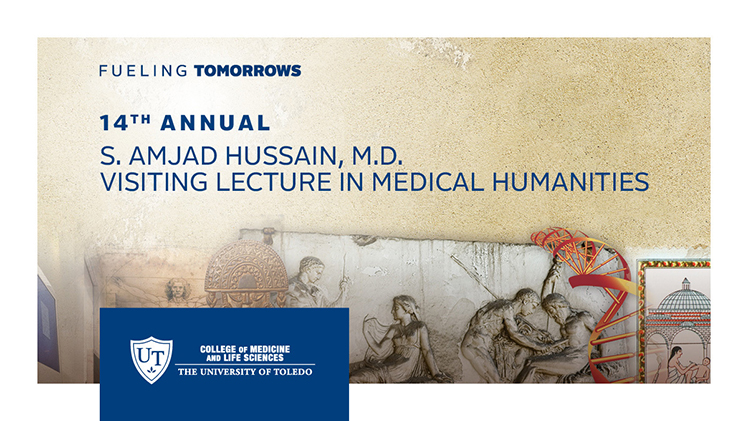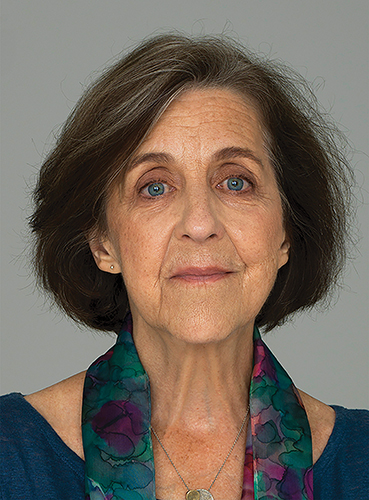Dr. Rita Charon, an influential physician who founded the trailblazing narrative medicine program at Columbia University, will be the featured speaker at this year’s S. Amjad Hussain Visiting Lecture in Medical Humanities.
The annual event, now in its 14th year, will be held at 5:30 p.m. on Thursday, Oct. 26, in Health Education Building Room 110 on The University of Toledo Health Science Campus.
 The event is free and open to the public, with a reception beginning at 5 p.m.
The event is free and open to the public, with a reception beginning at 5 p.m.
Charon was settling into her own practice as a general internist when she decided to go back to school to study literature — an unusual path but one that would shape her career as both a physician and educator.
“It was the medicine that led me there. I understood by then that patients paid me to listen to what they said. That was my task. I also realized it was very, very hard to understand fully what patients were saying,” she said. “It wasn’t just my arm hurts, or I ran out of my cholesterol medicine, but it was profound things about their lives and their suffering and their needs.”
Charon ultimately earned a Ph.D. in English from Columbia to go along with her M.D. from Harvard Medical School, and quickly began incorporating lessons from storytelling and listening into both her practice and her teaching.
Together with other physicians, scholars and writers, she developed what has become known now as narrative medicine.
Charon currently serves as the Bernard Schoenberg Professor of Social Medicine, the founding chair of the Department of Medical Humanities and Ethics, and professor of medicine at the Columbia University Vagelos College of Physicians and Surgeons. She’s also the executive director of Columbia Narrative Medicine.
The S. Amjad Hussain Visiting Lecture in the History of Medicine and Surgery was created in honor of Hussain, professor emeritus of cardiovascular surgery and humanities, a former member of the UToledo Board of Trustees and columnist for The Blade.

Dr. Rita Charon is the featured speaker at this year’s S. Amjad Hussain Visiting Lecture in Medical Humanities. Photo courtesy of Vincent Ricardel.
“There is a strong trend in medical education to bring a measure of humanities to the curriculum. Dr. Charon has been doing that at Columbia and also across the country,” Hussain said. “Physicians who are exposed to humanities during medical studies and even after their graduation show more empathy and are more closely connected with the communities they live in.”
While there are different ways to define the field, narrative medicine is at its essence a discipline that blends the arts and humanities with clinical practice and healthcare justice with a goal of improving healthcare from the perspective of both patients and providers.
“Narrative medicine is not simply relaxation for students or a wellness break from the hard sciences,” Charon said. “Instead, it’s a serious scholarly, rigorously conceptualized comprehension of what sick people and their families need from healthcare and what the clinician needs to be able to do in the face of their suffering.”
For example, a patient comes to their doctor complaining of back pain. The doctor, not interested or not willing to probe for more information, sends the patient home with a suggestion of increasing their dose of ibuprofen and following up with a physical therapist.
Had they asked the right questions and listened, they would know the back pain is caused by the woman pushing her husband in his manual wheelchair because the husband’s surgeon won’t authorize a motorized wheelchair.
“We don’t often give patients a chance to even get that far. Now we have two people suffering,” Charon said. “What I want to convey during my lecture is the complexity of listening to patients, the fact that we on the whole disappoint patients in our capacity to really comprehend what they’re bringing to us, and the very good news that there are ways to learn how to do it.”